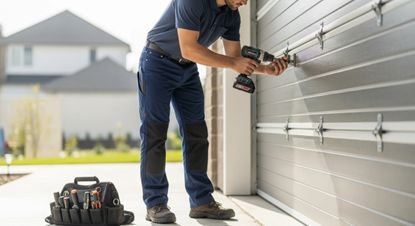
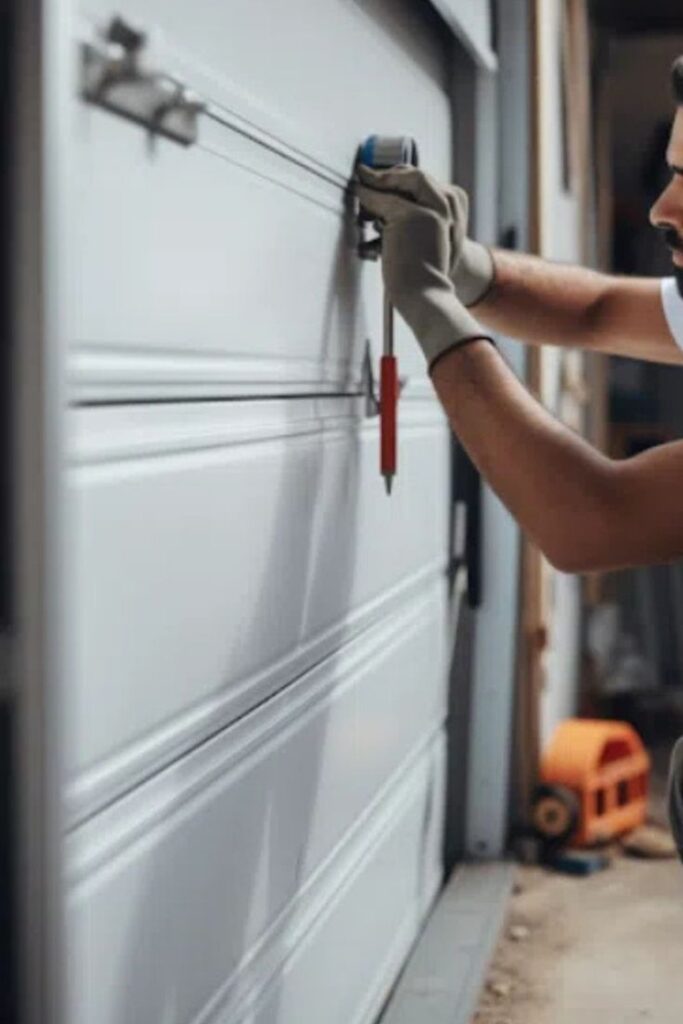
A smooth-running garage door is like good background music—you barely notice it. But when it starts rattling, screeching, or banging, you can’t ignore it. The good news? Most noise issues aren’t as scary as they sound.
If you’re in the middle of a late-night “garage door concert,” getting it fixed isn’t just about peace and quiet. It’s also about protecting the door’s lifespan and avoiding bigger repair bills down the line. For anyone looking for expert help, a trusted Montgomery garage door service can get your setup running quietly again without the guesswork.
First, Find the Culprit
Not all garage door noise is created equal. A sharp squeal might mean dry rollers, while a deep clunk could be loose hardware. Start by listening closely when you open or close the door.
Sometimes the sound alone can point you in the right direction. Think of it like car trouble—you don’t need to be a mechanic, but you can tell when something doesn’t sound right.
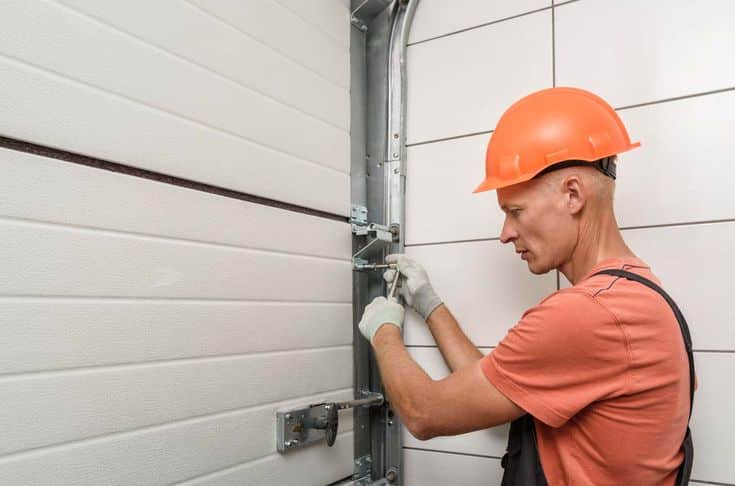
Lubricate the Moving Parts
One of the easiest and cheapest fixes is lubrication. Your garage door has a lot of metal parts rubbing together, and without enough grease, they’ll complain loudly.
Use a silicone-based or lithium-based lubricant on the rollers, hinges, and tracks. Avoid using heavy grease—it collects dust and makes things worse over time.
Tighten Up Loose Hardware
Garage doors move a lot, and all that vibration can loosen bolts and screws. That loose hardware will rattle with every movement.
Grab a socket wrench and check the brackets, hinges, and track supports. Tighten them up, but don’t overdo it—stripping a screw head is just adding another problem to your list.
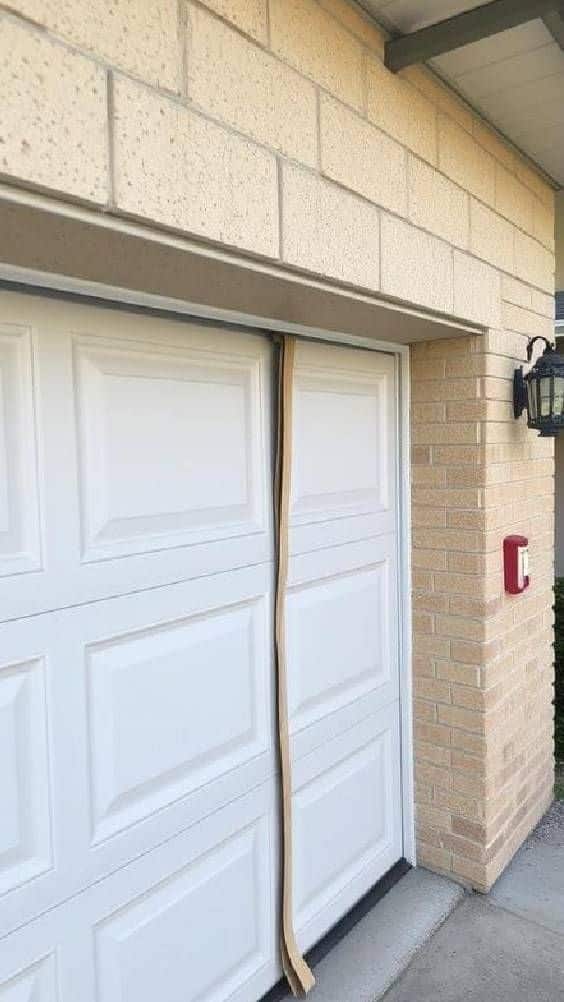
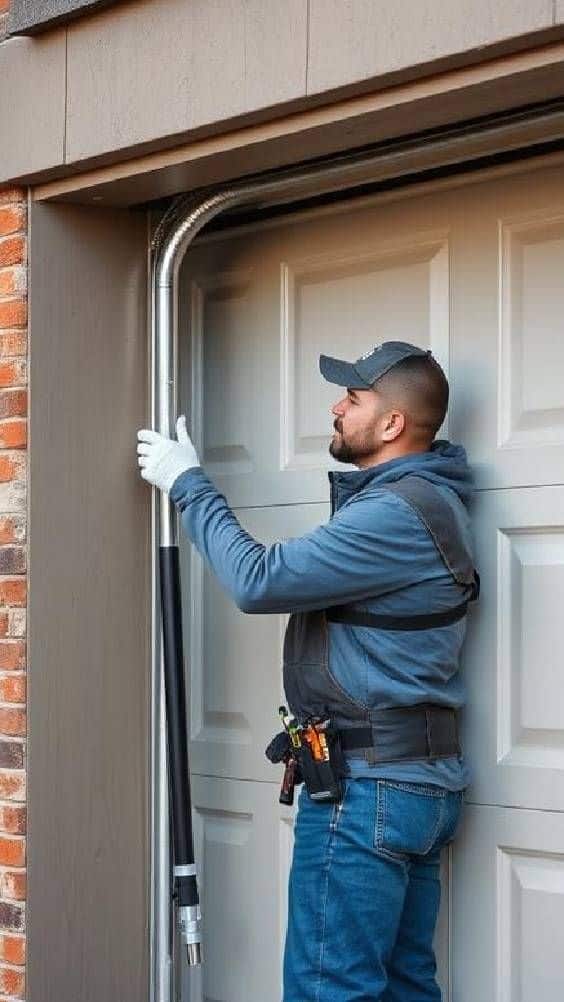
Inspect and Replace Worn Rollers
Rollers help the door glide smoothly. If they’re worn, chipped, or rusty, they’ll drag instead of roll—making a grinding noise you can feel in your bones.
Nylon rollers are quieter than steel ones and don’t need as much maintenance. If you’re swapping them yourself, make sure the garage door is secured and the opener is unplugged before starting.
Check the Tracks for Debris and Alignment
Tracks that are dirty or bent will make the rollers work harder, which means more noise. Use a damp cloth to wipe away dust and debris.
If the track looks misaligned, loosen the screws, tap it gently back into place, and retighten. Don’t force it—too much pressure can damage the track beyond repair.
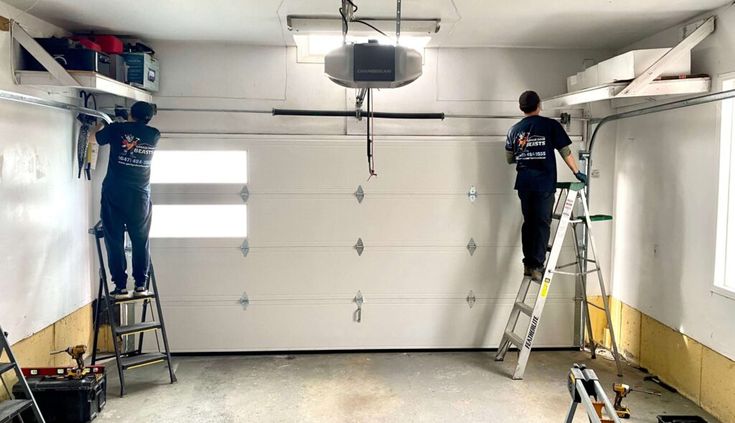
Look at the Springs and Cables (But Don’t Touch)
The torsion springs and cables handle a lot of tension, and they can be dangerous if mishandled. If you suspect they’re the source of the noise, call a pro.
Springs that squeak slightly can sometimes be lightly lubricated, but if there’s a loud snap or you notice uneven lifting, it’s a job for trained hands.
Quiet the Opener
Sometimes it’s not the door—it’s the opener. Chain-drive openers tend to be noisier than belt-drive models. If you have a chain drive, make sure the chain is lubricated and not too tight.
If the motor itself is humming louder than normal, it could be wearing out. That’s another “call in the experts” moment.
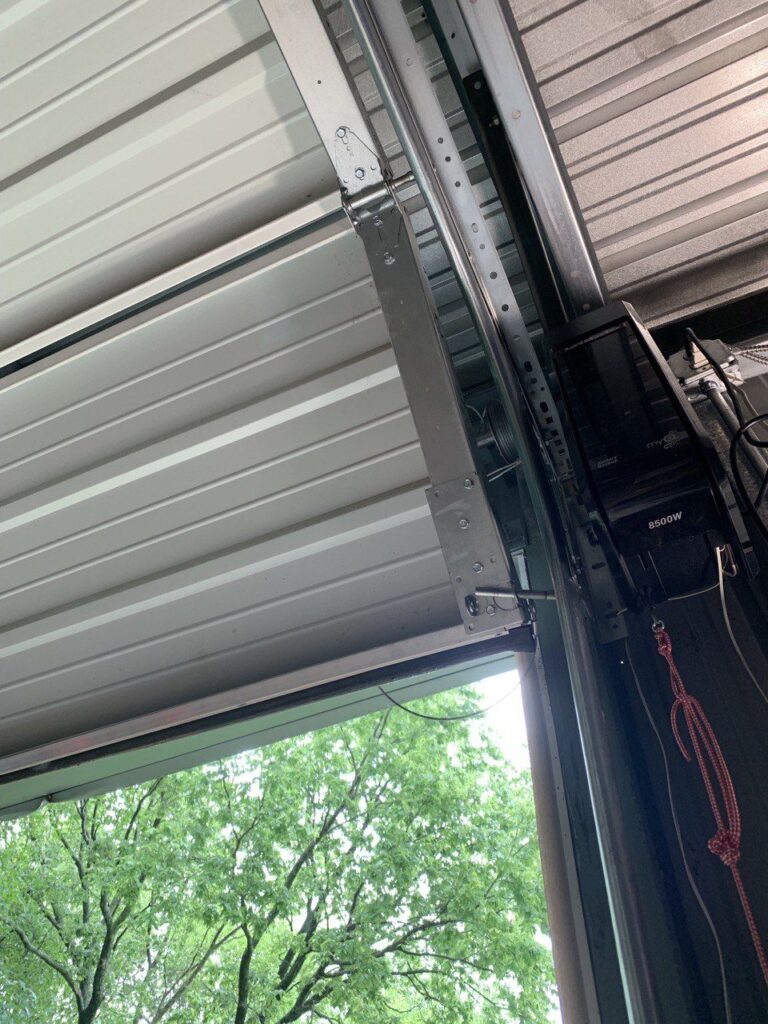
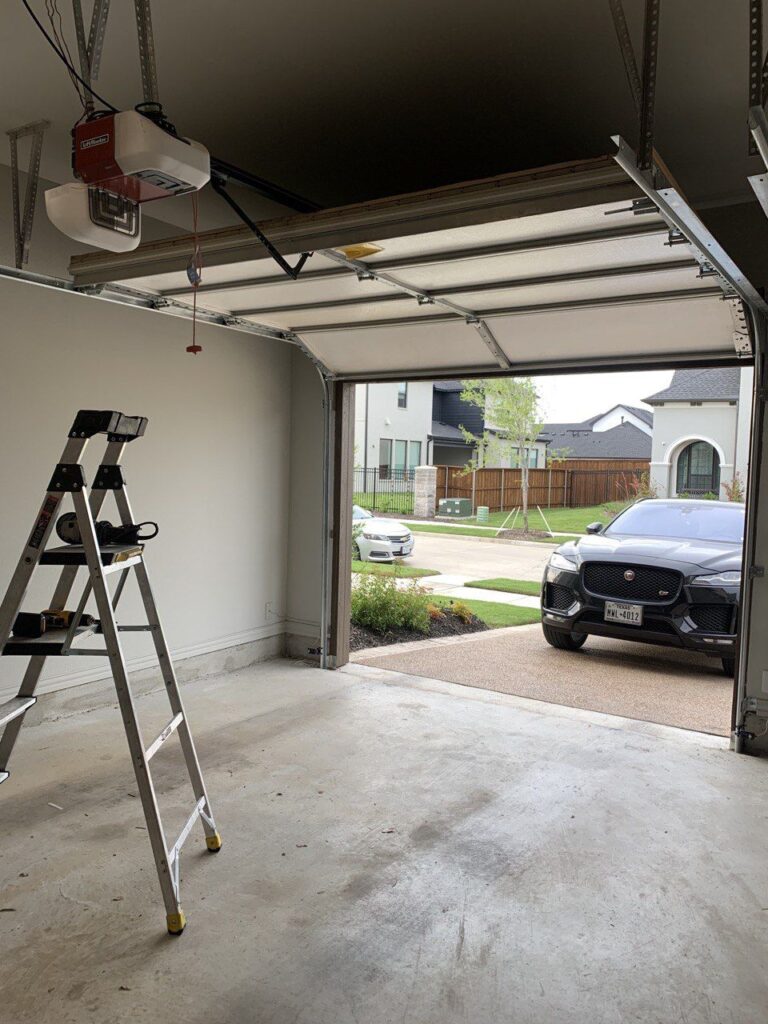
Add Noise-Reducing Upgrades
If you’ve done all the above and the noise is still an issue, it might be time for an upgrade. Nylon rollers, a belt-drive opener, or insulated panels can all reduce sound.
Some homeowners also install vibration-isolating brackets between the opener and the ceiling. It’s like putting your speakers on foam pads—less vibration, less noise.
When to Call a Professional
You can handle basic fixes like tightening hardware or cleaning tracks on your own. But anything involving springs, cables, or major structural adjustments should be left to someone with the right tools and training.
A professional can also spot wear or damage you might miss, which can save you from a surprise breakdown later.
Keeping the Door Quiet Long-Term

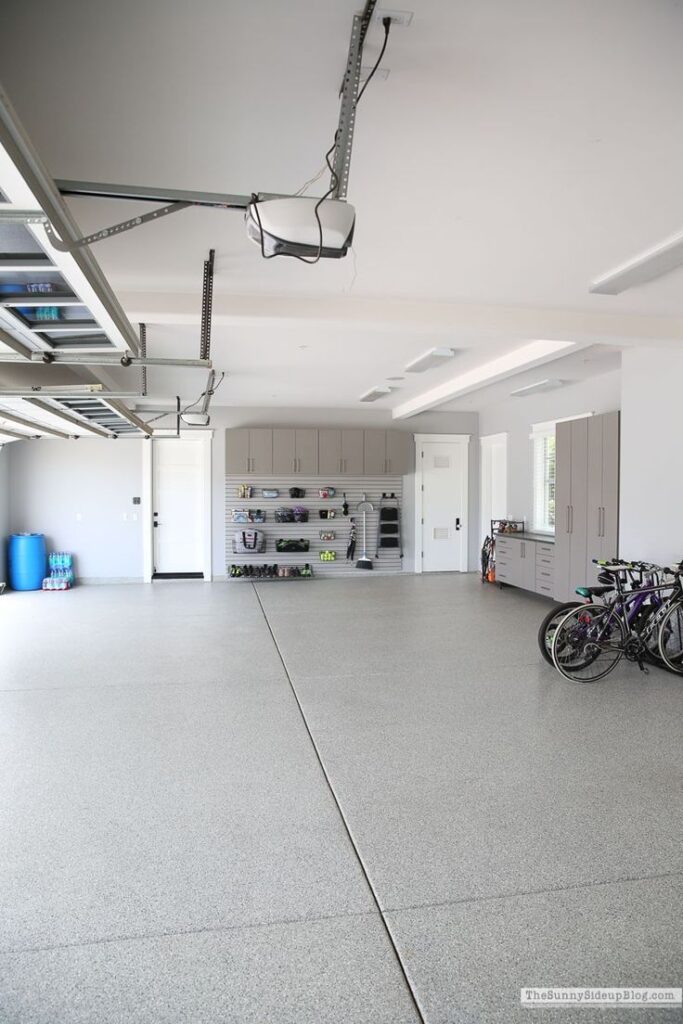
A noisy garage door isn’t something you fix once and forget. A little maintenance every few months can keep it operating smoothly.
Think of it like changing the oil in your car—cheap insurance against bigger headaches. Lubricate moving parts, check for loose hardware, and give the system a quick visual once-over.
Common Noise Problems and Quick Fixes
| Noise Type | Possible Cause | DIY Fix |
| Squeaking | Dry rollers or hinges | Lubricate moving parts |
| Grinding | Worn rollers | Replace with nylon rollers |
| Rattling | Loose hardware | Tighten screws/bolts |
| Banging/Clunking | Misaligned track | Adjust track position |
| Humming from motor | Opener issue | Lubricate chain or call pro |
Why You Shouldn’t Ignore the Noise
A noisy garage door isn’t just annoying—it’s a warning sign. Left unchecked, small issues can turn into expensive repairs.
Loose bolts can lead to a misaligned track, worn rollers can damage the opener, and broken springs can stop the door entirely.

Final Word: Peace and Quiet Is Possible
Your garage door doesn’t have to sound like a construction site every time it moves. With some basic maintenance and the occasional professional check-in, you can keep it running quietly for years.
If you’re done with the noise and want it fixed the right way, bring in an expert who knows the ins and outs of garage doors. The difference between “good enough” and “like new” is worth it.
- 3shares
- Facebook0
- Pinterest0
- Twitter3
- Reddit0



